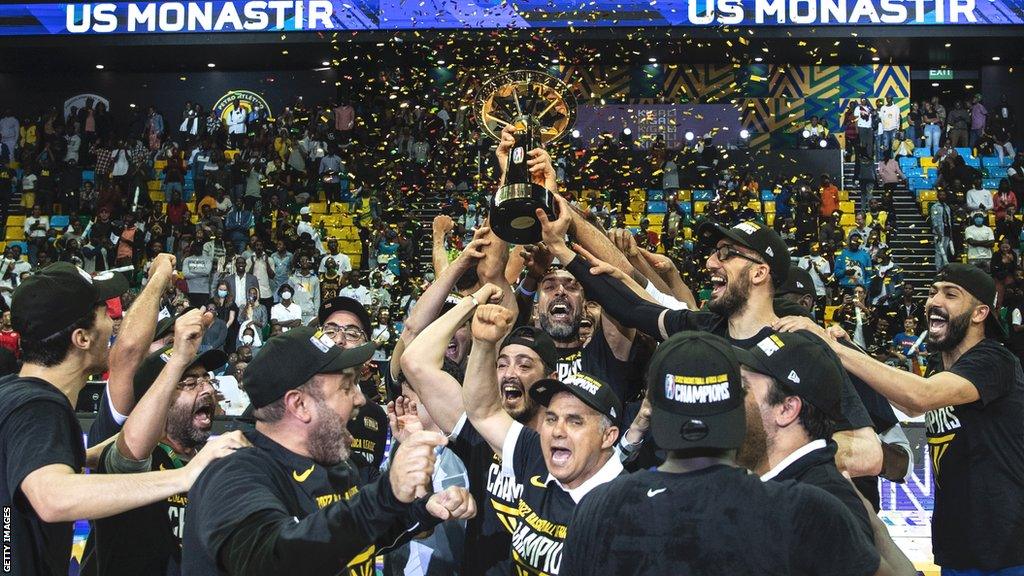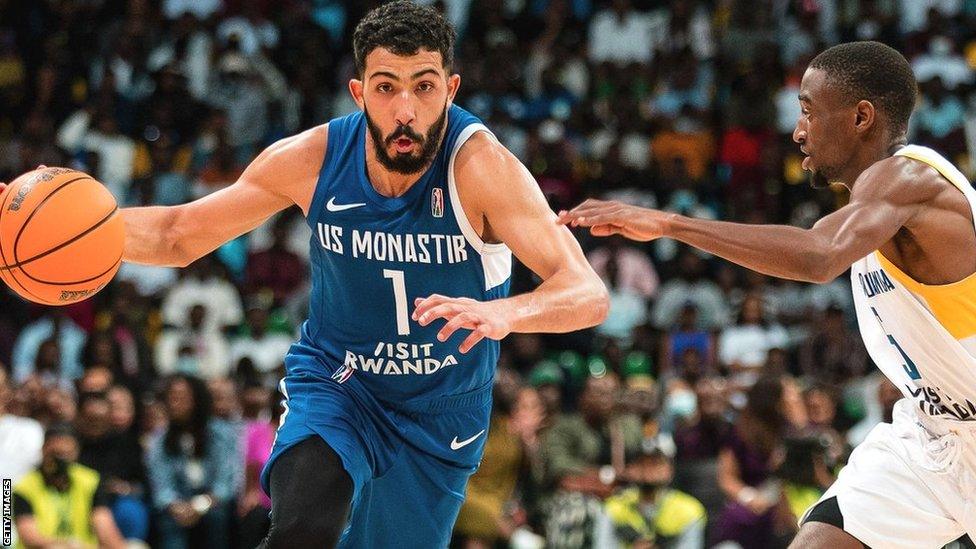Basketball Africa League retains same format for 2023
- Published

Tunisia's US Monastir beat Petro de Luanda of Angola to win the 2022 Basketball African League (BAL) title
The Basketball Africa League (BAL) will return in 2023 with the same 12-team format used this year, with two conferences played in Senegal and Egypt before play-off finals in Rwanda.
The regular season will again be divided between two conferences, scheduled before and after the Islamic holy month of Ramadan.
The Sahara Conference will be played from 11-21 March in Dakar, with the Nile Conference held in Cairo between 26 April-6 May.
The four best teams from each of the two six-team groups will meet in the Rwandan capital Kigali for the knock-out phase from 21-27 May.
“We launched in the middle of the pandemic, and it was all in one location," BAL’s head of strategy and operations John Manyo-Plange told BBC Sport Africa.
“Last season was the first in multiple cities and we felt it was important for this season to fortify our fanbase in the three cities.”
Tunisian outfit US Monastir won the title in 2022, having beaten inaugural champions Zamalek of Egypt in the semi-finals.
The BAL is yet to announce which clubs will participate in the competition in 2023, with the teams having changed from the first tournament in 2021 and last year's.
"We look forward to building on the success of our second season and continuing to deliver an authentic African sport and entertainment product that inspires and connects people across the continent and around the world," BAL president Amadou Gallo Fall said.
Hidden talent?
Meanwhile, the BAL will hold an event near the French capital Paris on 15 and 16 January to allow teams to scout potential players, some of whom will come from the African diaspora.
“This is a way for team talent scouts to be able to evaluate talent," Manyo-Plange explained.
“Generally, you find that African teams don’t really have that exposure to see foreign players [in person] when they play.”
Meanwhile, Manyo-Plange says the growth of the BAL - with 12 extra games added from the inaugural season in 2021 - means the competition is proving more attractive to players from around the world.
“If you look back five years ago, when a top-tier player from outside of Africa is looking for a place to play, of course you have the NBA, the EuroLeague, the NBA G-League [a minor league] and outside of that, players are playing in China, Japan and Romania," he said.
"Some of these players are first-generation Africans but they’ve never thought of Africa as a destination to come play - that has now changed.”

One of the main challenges for the BAL next year will be to attract more fans to the arenas hosting games.
For example, in Senegal, the venue used this year is one hour away from the capital Dakar and was only packed when the local side, Dakar Universite Club (DUC), were on court.
“The venue is all the way to Diamniadio and there is currently no public transportation to go there," Mayo-Plange said.
"We have to figure out some logistics to make sure that we can get the fans there.”
Dakar Arena 'largely empty' for some games
Analysis by Babacar Diarra, BBC Sport Africa in Dakar
In March this year, BAL made a big push for Sahara Conference games in Dakar through an advertising campaign which saw buses touring the city, the youth market targeted and ticketing offices made very accessible.
With over a half hour walk from the nearest train stop to the Dakar Arena in Diamniadio, special shuttles from the Senegalese capital were organised all day for tickets holders.
But one ticketing operator told me people were concerned about both the distance of the trip, and the disproportionate time taken to get there.
The traffic in Dakar and its suburbs is crazy, which explains why the Arena was largely empty except when the local team, DUC, was playing.